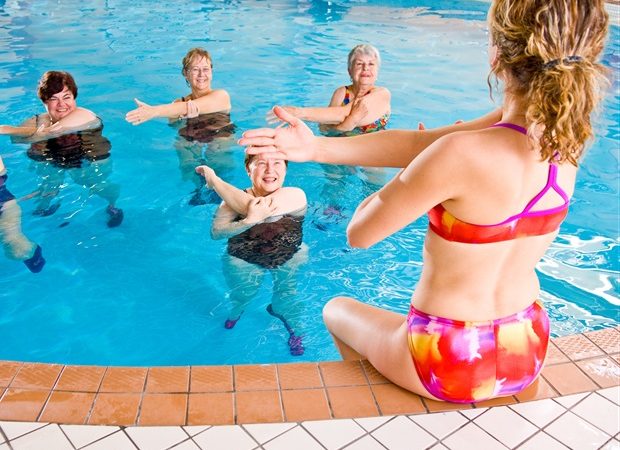Sticking with an exercise program can be tough, even during the best of times. But what about during a pandemic?
A new study by the University of Missouri and Oklahoma State University found that even when gyms were closed and there were other COVID-19 restrictions limiting face-to-face meetings, older adults who completed the Stay Strong, Stay Healthy exercise program -; created at MU in 2005 -; continued to maintain long-term exercise habits independently, which resulted in improved lifestyle changes and an increase in both physical energy and self-confidence.
We sent the surveys three months, six months, nine months and 12 months after their first Stay Strong, Stay Healthy class. We were hoping that they would continue to exercise regularly after the class, but we did not know to what degree or magnitude, so we were happy to learn most participants independently sustained the exercise habits they developed during the group program."
Kristin Miller, assistant extension professor, MU School of Health Professions
Miller collaborated with Bree Baker, an assistant professor at OSU, to review the 12-month follow-up surveys from adults over age 50 who had taken the eight-week Stay Strong, Stay Healthy resistance training course.
Baker added the participants not only reported long-term physical health benefits, including better sleep and higher energy levels, but they also reported more self-confidence in their ability to complete basic daily tasks, which sometimes become more difficult for older adults as they age. Previous studies have shown that the Stay Strong, Stay Healthy program, which includes instructor-led strength training exercises like squats, bicep curls and lunges, improves muscle strength, balance, flexibility, and sleep as well as decreases the risk of falls for older adults.
"I think sometimes people may be unsure of themselves so they may lack the confidence that they can do certain things," Baker said. "It was great to see that they discovered if they can lift weights or complete various exercises, they can clearly go do other things that they are interested in. So I think Stay Strong, Stay Healthy helped them build their confidence and it opened their eyes to all the other things that they can do in their life."
Miller has seen the program's effect on older adults firsthand after her own parents volunteered to participate in the Stay Strong, Stay Healthy eight-week class.
"My parents were in the randomized control trial, and they still continue to do all those healthy habits they learned during the class to this day," Miller said. "I've been their daughter this entire time telling them to do all these things, but it took them taking the class to actually jump start their increased activity levels and make it last."
After 18 years, the program has reached more than 20,000 older adults and expanded to some of Missouri's neighboring states, including Oklahoma. The findings of this study can help the program continue to grow and potentially be implemented nationwide.
"If you only have anecdotal example of the health benefits, that is one thing, but now with the scientific proof of the various health benefits, national governing bodies and funding organizations are more likely to provide funding to this program that has evidence that it works," Baker said.
"Older adults who resistance train improve physical function and adopt long-term exercise habits despite COVID-19 restrictions." was recently published in Journal of Sports Sciences.
University of Missouri-Columbia
Miller, K., et al. (2023) Older adults who resistance train improve physical function and adopt long-term exercise habits despite COVID-19 restrictions. Journal of Sports Sciences. doi.org/10.1080/02640414.2022.2140912.
Posted in: Medical Research News | Healthcare News
Tags: covid-19, Exercise, Muscle, Pandemic, Research, Sleep
Source: Read Full Article
